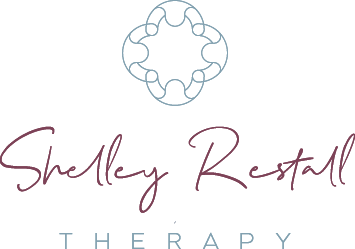Starting Therapy? Get clarity on ways you can participate in therapy to make it worthwhile.
Starting therapy can be a big step towards improving your mental health and well-being. Here are a few things to keep in mind as you begin your therapy journey:
Therapy is a journey of ups and downs.
Change is an ongoing journey, and with the right supports guiding you to take the action you desire you can reach your goals.
Finding the right therapist: Finding the right therapist is key to a successful therapy experience. Look for someone who specialises in the issues you're facing and who you feel comfortable talking to. You may need to try a few therapists before finding the right fit. This is totally ok to do, and you can share your preferences, experiences, and concerns during consultation calls with therapists to support you in finding the “right fit.”
Set goals: Be clear about what you want to get out of therapy. Setting goals can help you and your therapist stay focused and track your progress. The first 1-3 sessions of therapy can be talking about your concerns, getting to know the therapist, yourself, and collaboratively exploring the setup of your goals if you aren’t sure what goals you have in starting therapy. It’s totally normal that goals can change as your experiences progress in therapy too.
Be honest: Honesty is important in therapy. Share your thoughts and feelings openly with your therapist, even if they are difficult or embarrassing to talk about. Vulnerability and courage to share are key ingredients in the process of engaging in therapy.
Understand the process: Therapy is a process, and it takes time. Don't expect immediate results, but know that progress is possible with time and effort.
Be open to change: Therapy may challenge your beliefs and ways of thinking. Be open to the possibility of change and growth. If you are scared to try something, or did try it and feel it didn’t help, let’s talk about it in a therapy session. You cannot fail psychological treatment, so it’s always a benefit to process how something worked, didn’t work, what your expectations were, and then engage in problem solving around this topic to progress forward with more changes.
Take an active role: Therapy is a collaborative process. Take an active role in your therapy, participate in your treatment, and complete any homework assignments or exercises your therapist suggests.
Be patient and kind to yourself: Healing and growth take time. Be patient with yourself and acknowledge the progress you've made, no matter how small. Self-compassion helps us to understand that we matter, our needs matter, and that we can make changes at the pace that is individually right for us, not according to someone else’s expectations. This is your therapy journey.
Consider therapy having 3 stages to progress through.
Segment 1: STARTING WELL
The initial stage of treatment is focused on both assessing and developing a joint understanding about your concerns. The therapist and yourself work together to collaboratively develop treatment goals. For most treatments, we start with commitment, enhancing motivation, engaging in emotional processing, reframing and processing thoughts. Including behavioural change is important to getting the outcome you want so this is often introduced early, with small steps to build confidence with your ability to make change. Once change begins it seems to get momentum to keep going with change. Motivation comes more so after action begins, where most people think motivation is needed before action occurs.Part 2: DOING THE THERAPY
Attending a session of therapy per week is usually not enough to produce the relief people want to achieve. Experiential therapy models such as EFT, DBT, CBT, ACT, mindfulness strategies, and EFT-Tapping are all highly active approaches to therapy and what you do in the other 167-hours in the week is the most important part. Think of your therapist as your coach and between sessions as your daily practice to help you both sustain change, build confidence with change, and build increased changes desired.
Part 3: RELAPSE PREVENTION
Success in therapy is more than just how you feel after a session. Success is actually defined individually according to your goals and what you want to get out of attending therapy. Some examples could include; getting a deeper understanding of yourself, the reasons behind your concerns, improving your anxiety and stress management, healing relationships, learning a specific skill such as setting boundaries, having open communication with confidence, and stopping unhealthy behaviours such as eating disorder behaviours. Relapse prevention is a woven part of our discussions through the sessions. At the end of therapy we can review progress, what worked well for you, and then outline a plan so you can continue to maintain the progress you have made. This relapse prevention plan can also include warning signs you need to seek out help again, rather than waiting until it’s severe again to seek help.Remember that therapy is a personal journey and the experience will be unique to you. Don't be afraid to ask your therapist any questions or express any concerns you may have along the way. Therapy is a collaborative process and asking questions as well as giving feedback thro


